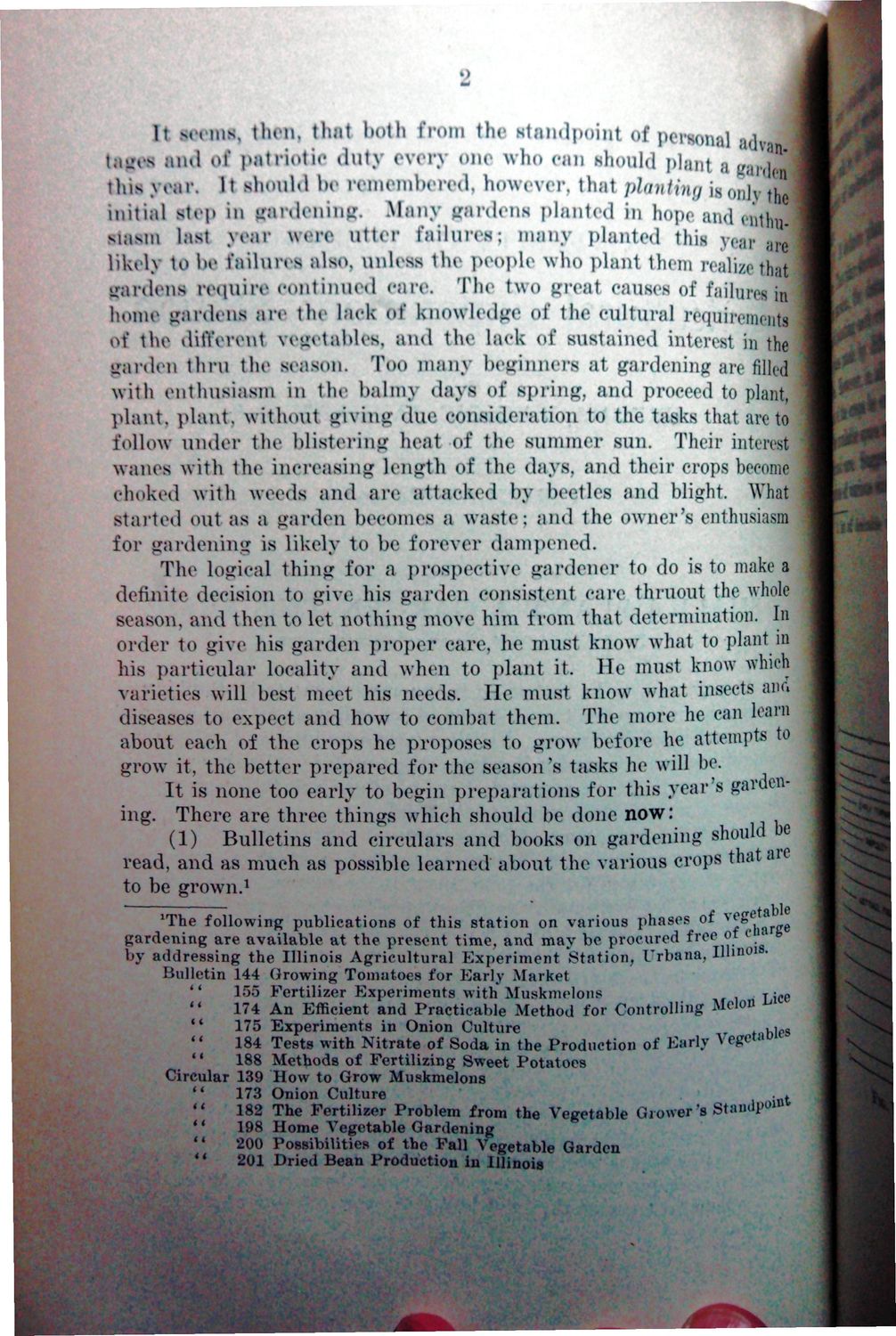| |
| |
Caption: War Publications - WWI Compilation 1923 - Article 32
This is a reduced-resolution page image for fast online browsing.

EXTRACTED TEXT FROM PAGE:
2 It semis, then, that both from the Htnndpoint of personal ad• t.-ivrrs and 01 patriot n- duty every one who can Hhould plant a gaiVl^ tins year. It should lie remembered, however, that p^/n<tnp is only the initial step m gardening Man\ gardens planted in hope and enthusiasm last year were utter failures; many planted this year are likely to be failures also, unless the people who plant them realize that gardens require continued care. The two great causes of failures in home gardens are the lack of knowledge of the cultural requirements Of the different vegetables, and the lack of sustained interest in the garden thru the season. Too many beginners at gardening are filled with enthusiasm in the balmy days of spring, and proceed to plant, plant, plant; without giving due consideration to the tasks that are to follow under the blistering boat of the summer sun. Their interest wanes with the increasing length of the days, and their crops become choked with weeds and are attacked by beetles and blight. What started out as a garden becomes a waste: and the owner's enthusiasm for gardening is likely to be forever dampened. The logical thing for a prospective gardener to do is to make a definite decision to give his garden consistent care thruout the whole season, and then to let nothing move him from that determination. In order to give his garden proper care, he must know what to plant in his particular locality and when to plant it. He must know which varieties will best meet his needs. He must know what insects aim diseases to expect and how to combat them. The more he can learn about each of the crops he proposes to grow before he attempts to grow it, the better prepared for the season's tasks he will be. It is none too early to begin preparations for this year's gardening. There are three things which should be done now: (1) Bulletins and circulars and books on gardening should be read, and as much as possible learned about the various crops that ar 1 to be grown. The following publications of this station on various phases of Jt^*jLj gardening are available at the present time, and may be procured free of c by addressing the Illinois Agricultural Experiment Station, Urbana, Illinois. Bulletin 144 Growing Tomatoes for Early Market 11 155 Fertilizer Experiments with Muskmelons T ;ce Melon i < 174 An Efficient and Practicable Method for Controlling M 175 Experiments in Onion Culture h i« s 184 Tests with Nitrate of Soda in the Production of Early Vegetal 1 ' 188 Methods of Fertilizing Sweet Potatoes Circular 139 How to Grow Muskmelons 173 Onion Culture int 11 182 The Fertilizer Problem from the Vegetable Grower's Stamlp° '* 198 Home Vegetable Gardening " 200 Possibilities of the Fall Vecetahlp Garden egetable Gnrdpn i i 201 Dried Bean Production in Illinois lr v
| |